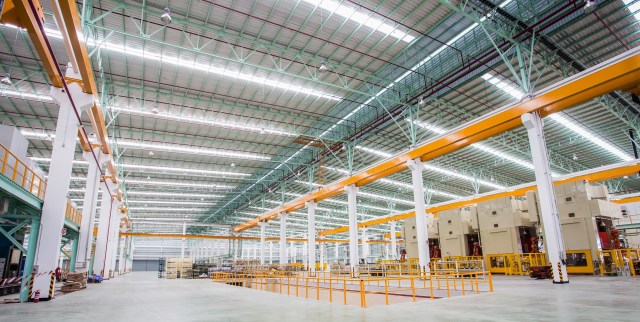Key Factors to Consider When Selecting Industrial Equipment for Your Operations
Industrial equipment plays a crucial role in the success of any manufacturing or industrial operation. Whether you are starting a new venture or looking to upgrade your existing machinery, choosing the right industrial equipment is essential. With so many options available in the market, it can be overwhelming to make the right decision. However, by considering a few key factors, you can ensure that you select the most suitable equipment for your specific needs. In this article, we will discuss four important factors to consider when choosing industrial equipment.
Understanding Your Operational Needs
Before diving into the process of selecting industrial equipment, it is crucial to have a clear understanding of your operational needs. Start by identifying the specific tasks and processes that require machinery intervention. Consider factors such as production volume, required precision, and any unique requirements or constraints that your operation may have.

By thoroughly assessing your operational needs, you can determine the type and specifications of equipment required. For example, if you need heavy lifting capabilities in your warehouse, a forklift may be necessary. On the other hand, if you require precise cutting and shaping for metal fabrication, a CNC machine might be more suitable.
Quality and Reliability
When investing in industrial equipment, it is vital to prioritize quality and reliability. The quality of the machinery directly affects its performance and longevity. Choosing high-quality equipment ensures that it can withstand demanding operational conditions and reduces the risk of frequent breakdowns or repairs.
Research different manufacturers and suppliers to find reputable brands known for their quality products. Read customer reviews and testimonials to gain insights into their reliability and after-sales service support. Additionally, consider factors such as warranty coverage and availability of spare parts when evaluating different options.
Safety Features
Industrial operations often involve hazardous environments where safety is paramount. Therefore, selecting equipment with appropriate safety features is crucial not only for worker protection but also to comply with industry regulations.
When evaluating industrial equipment options, pay attention to safety features such as emergency stop buttons, guards, interlocks, and warning systems. Ensure that the equipment you choose meets or exceeds all relevant safety standards and certifications. Investing in machinery with advanced safety features can minimize the risk of accidents and injuries in your workplace.
Cost Considerations
While quality and reliability should be top priorities when selecting industrial equipment, cost considerations cannot be ignored. It is essential to find a balance between your budget constraints and the value provided by the equipment.
Consider not only the initial purchase cost but also long-term costs associated with maintenance, repairs, energy consumption, and any required operator training. Evaluate different financing options if necessary to determine the most cost-effective solution for your business.
In conclusion, choosing the right industrial equipment requires careful consideration of various factors. By understanding your operational needs, prioritizing quality and reliability, ensuring adequate safety features, and evaluating costs effectively, you can make an informed decision that aligns with your business goals. Remember to consult experts or seek professional advice if needed to ensure that you select industrial equipment that maximizes productivity while meeting all necessary requirements for your specific operations.
This text was generated using a large language model, and select text has been reviewed and moderated for purposes such as readability.


